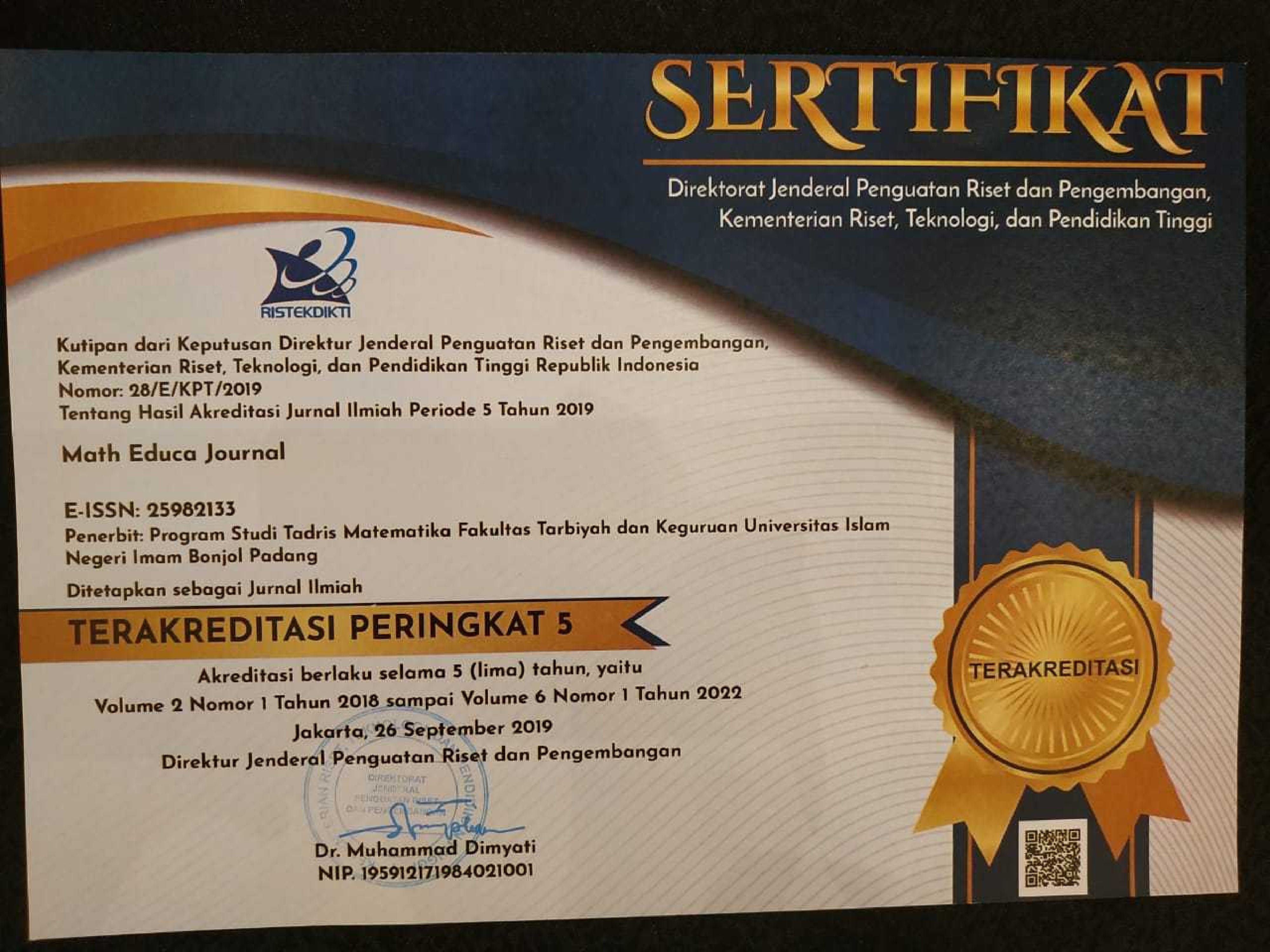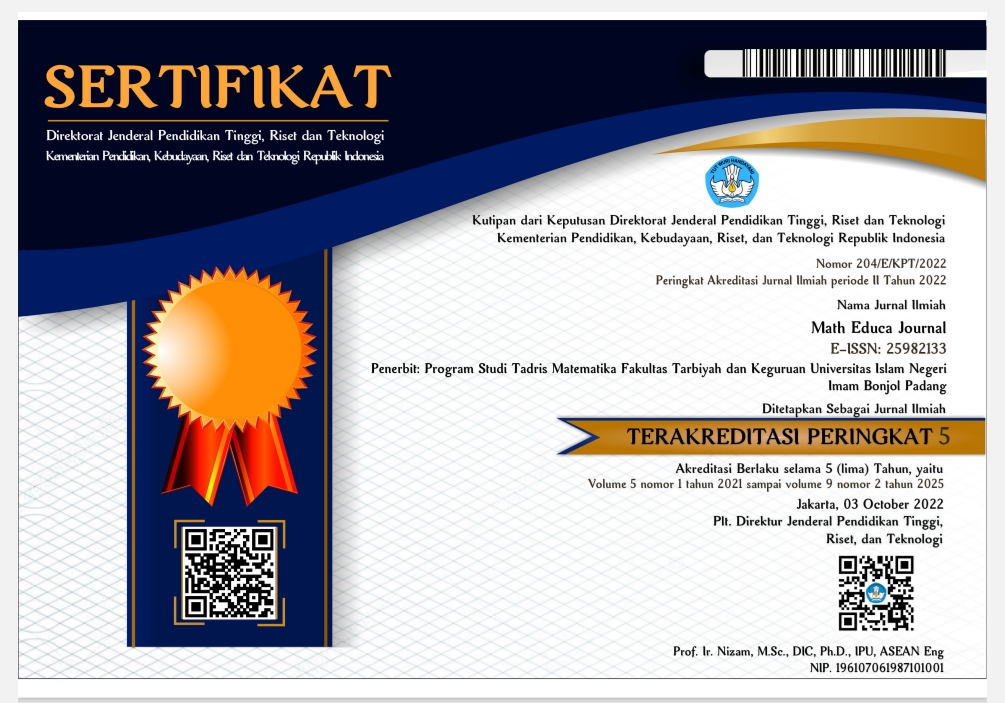PERBEDAAN PETA PIKIRAN DAN PETA KONSEP TERHADAP HASIL BELAJAR SISWA PADA EKSPONEN
Abstract
Keywords
Full Text:
PDFReferences
Alwi, M. (2014). Anak cerdas bahagia dengan pendidikan positif. Mizan.
Ardila, A., & Hartanto, S. (2017). Faktor yang mempengaruhi rendahnya hasil belajar matematika siswa MTS Iskandar Muda Batam. PYTHAGORAS: Jurnal Program Studi Pendidikan Matematika, 6(2), 175–186. https://doi.org/10.33373/pythagoras.v6i2.966
Arikunto, S. (2007). Manajemen penelitian. Rineka Cipta.
Beavers, K. (2014). Mind and concept mapping. Tips and Trends, 1–4. https://acrl.ala.org/IS/wp-content/uploads/2014/05/2014winter.pdf
Bobbi De Porter, M. H. (2015). Quantum learning membiasakan belajar nyaman dan menyenangkan. Kaifa Learning.
Buzan, T. (2009). Buku pintar mind mapping. Gramedia.
Lorsbach, A & Tobin, K. (1992). Constructivism as a referent for Science Teaching. NARST research matters – to the Science Teacher.
Ningrum, D, W. (2015). Perbandingan hasil belajar fisika Siswa Kelas XI yang menggunakan metode pembelajaran peta pikiran (Mind Mapping) dan metode pembelajaran peta konsep (Concept Mapping). Prosiding Seminar Nasional Fisika (E-Journal) SNF2015, Volume IV.
Sudjana. (2005). Metode statistika. Tarsito.
Trianto. (2007). Model-model pembelajaran inovatif berorientasi kontruktivistik (S. M.E (ed.)). Prestasi Pustaka.
Wardani, S. K. (2017). Pengaruh penggunaan peta konsep dalam pembelajaran matematika terhadap hasil belajar siswa. Universitas Muhammadiyah Surakarta.
Zahara, E. (2018). Pengaruh strategi pembelajaran ekspositori berbasis peta pikiran (Mind Map) terhadap hasil belajar Matematika siswa kelas VIII SMP Swasta YPMA Medan tahun ajaran 2017/2018. Universitas Islam Negeri Sumatera Utara.
Refbacks
- There are currently no refbacks.

This work is licensed under a Creative Commons Attribution-NonCommercial-ShareAlike 4.0 International License.
The Journal Space of the Mathematics Education Department
Faculty of Education and Teacher Training
State Islamic University of Imam Bonjol Padang
Email: mej.uinibpadang@gmail.com

Math Educa Journal is licensed under a Lisensi Creative Commons Atribusi-NonKomersial 4.0 Internasional.
Based on a work at https://ejournal.uinib.ac.id/jurnal/index.php/matheduca.
All rights reserved p-ISSN: 2580-6726 | e-ISSN: 2598-2133




